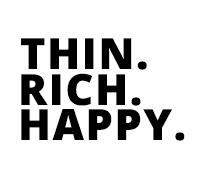
Foreign words are brilliant.
Wundabar! Bonjourno! Tagliatelle! Pamplemousse!
And maybe best of all, the German word Kummerspeck, which is a word used to describe excess weight gained from emotional overeating. It translates literally as Grief Bacon – how glorious is that?
This week I discovered two more to add to the collection. Both words are Japanese and a welcome salve for those of us who have ever felt the occasional tug of self-loathing or the proper pain of feeling broken.
First up is Wabi-Sabi (not to be confused with wasabi), a word that distils the idea that everything in nature is impermanent, imperfect and incomplete. Imperfection should therefore be embraced, because it is the natural state of all things, including ourselves. The thing I love about this word is that it welcomes us to stop worrying about how we want everything to be – perfect, tidy, easy – and simply to accept it as it is – crooked, messy and hard.
We are beautiful because of our scars, not despite them.
Which segueways rather nicely to our second word – Kintsugi, which is the Japanese art of putting broken pieces of pottery back together. With gold laquer no less. All the better to showcase the flaws and broken bits.
The theory being that any (rich) fool can buy a fancy vase, but there is far more strength and beauty in something that has been broken and carefully put back together, piece by piece. Which is excellent news for those of us who have been knocked down, but stood back up. Who have had their heart callously ripped out, but managed to mush it back together. For every bruised, broken, chipped and hastily repaired one of us.
Which is probably (nearly) all of us.
In the words of Leonard Cohen – ‘There is a crack in everything. That’s how the light gets in.’
This Get Happier post is brought to you by someone who eats the broken cookies first, because I feel bad for them (obviously).
 5 Questions You Should Never Ask (because you are better than that).
5 Questions You Should Never Ask (because you are better than that). The Four Burner Theory & The Myth of Having it All.
The Four Burner Theory & The Myth of Having it All. How to Live with Other People (all-of-the-time).
How to Live with Other People (all-of-the-time). How to Stay Married – The 9 Secrets to Staying Happily Ever After.
How to Stay Married – The 9 Secrets to Staying Happily Ever After.